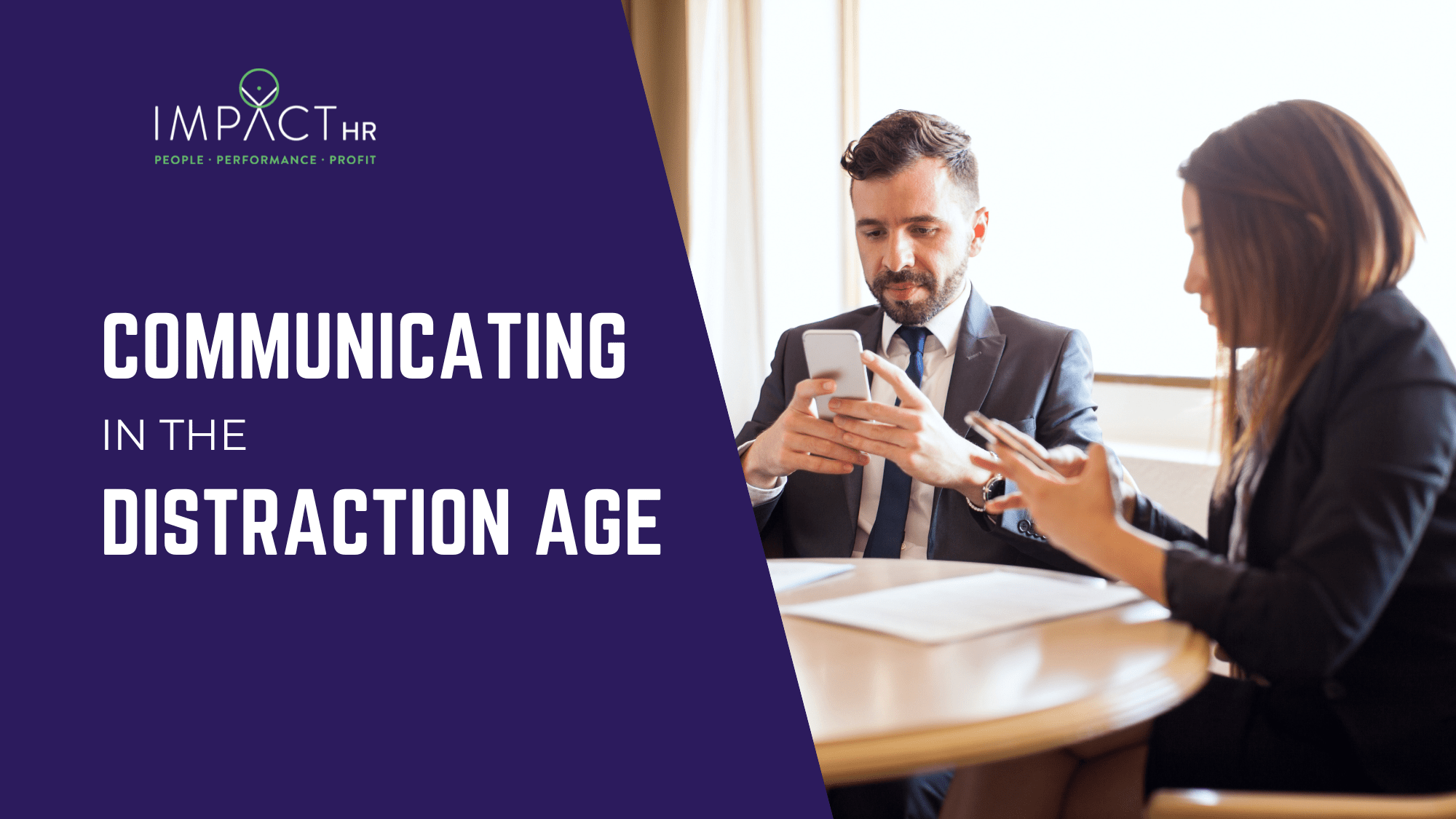
Communicating in the Distraction Age
March 4, 2024
By: Tania Yates
* I have about 15 seconds to grab your attention before you decide to read this or not. It’s even less before you’ll be distracted, only 8 seconds! *
Smartphones, internet and social media are all designed to distract and divert our attention. Yet we need to use these tools for work. At work this poses a real challenge when communicating important messages to our team and ensuring the team take action.
It’s up to us as Leaders and Managers to be aware of the traps, adapt our approach and ensure action.
Our 6 tips for effective communication are:
1. Don’t multi-task.
Answering text messages while in conversation with others is out. Research shows there is no such thing as multitasking. You are just switching your attention between activities rapidly. This degrades your attention, and you are likely to miss important information. Focus your full attention on the other person.
2. Pick a quiet location (where possible).
For important communication, move to a quiet space or turn the noise off. Research shows us that each input degrades your attention. Having TVs on, music playing, and even open office plans all affect your ability to listen. It can also make it harder for those listening at the other end of the line.
3. Call back if the line is bad.
If the phone or video line is poor, try calling back or postponing the call. Vital information can be missed. Try switching to another communication type or switching off the video link.
Telecommunications companies deliberately prioritise data and video calls over phone calls. The patchy lines are here to stay, so we need to work with it.
4. Pick how you communicate effectively.
Emails can appear to be a quicker and easier way to communicate. The only problem is that you and others could be getting just 7% of the intended message. Over 93% of our messaging is interpreted through body language and tone. Only 7% is from words.
Add the potential for autocorrect mishaps and it’s a recipe for misinterpretation. Consider face to face communication (IRL or Virtual) as a key part of your communication mix.
5. Slow it down.
Are you listening to devices at 1.5x and 2x the speed then trying to communicate with others? Slow it back down before finishing. This helps reset your brain’s processing speed. While there are definite time advantages to finishing that audiobook or podcast at double the speed, research has shown this reduces our attention span and ability to listen to others afterwards.
6. Set the example and hold others to it.
Set expectations on how to engage each other early in meetings and any activities of importance. If everyone then commits to putting their phone away, prioritising the current meeting etc gives you permission to make a polite comment if they are not honouring the agreement.
*Statistics taken from the book by Kate Murphy “You’re not Listening”
More News? Sign Up for our e-Newsletter?